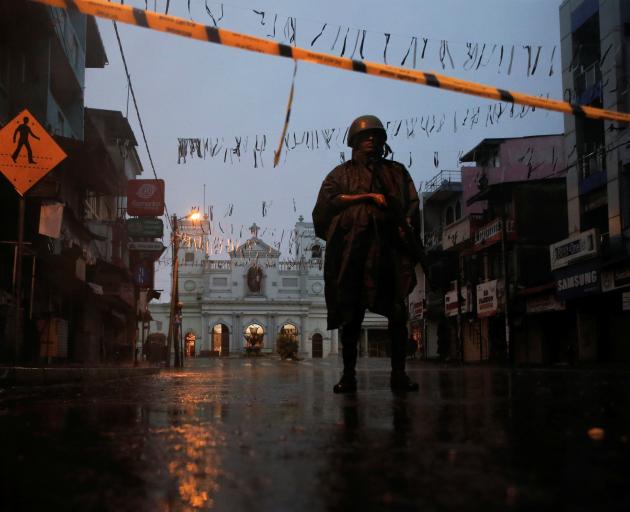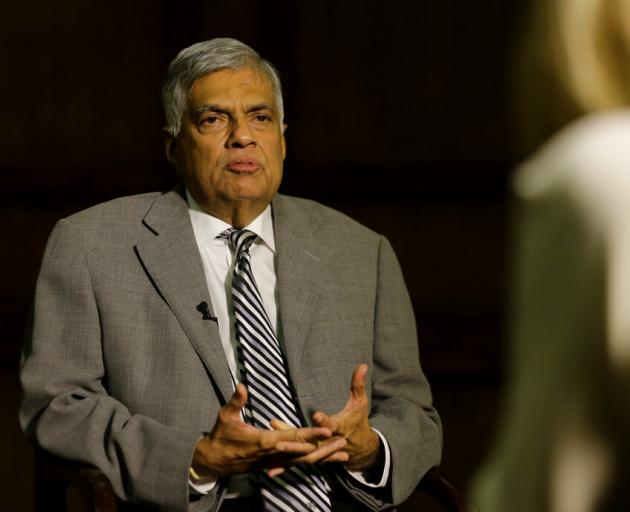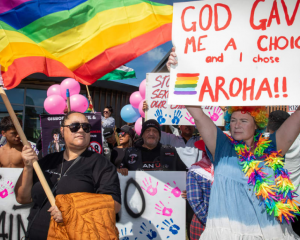
Meanwhile authorities have reduced the death toll by about 100 and warned there could be more attacks.
AAP reported that one of the Sri Lankan bombers came back from Australia after his post-graduate studies a changed man, his sister says.
Abdul Lathief Jameel Mohamed studied at Swinburne University in Melbourne between 2009 and 2013, The Australian reports.
Mohamed, suspected to be one of the ringleaders of the atrocity in Sri Lanka, was investigated by the Joint Counter Terrorism Team in 2014 because of his links to several suspects including Neil Prakash, the paper says.
Samsul Hidaya, one of Mohamed's sisters, told the Daily Mail her brother became "a different man" in Australia and became withdrawn and intense.
"My brother became deeply, deeply religious while he was in Australia," Ms Hidaya told the Daily Mail.
"He was normal when he went to study in Britain, and normal when he came back. But after he did his postgraduate in Australia, he came back to Sri Lanka a different man.
"He had a long beard and had lost his sense of humour. He became serious and withdrawn and would not even smile at anyone he didn't know, let alone laugh."
Mohamed died when he detonated his suicide bomb on Easter Sunday near the New Tropical Inn guesthouse in Colombo, killing two people.
Bomber's family lived in Auckland
Ten years ago, after his father, Abdul Latif, died, his mother, Samsun Nissa, moved the family to Colombo, renting the upper floor of a mansion in a majority Muslim eastern suburb.
After returning from studying in Britain, he moved into the property and fell in love with their landlord's daughter, Shifana, who came from an affluent meat-trading family.
They married before moving to Australia so he could pursue his postgraduate studies.
Mohamed's younger sister married a Sri Lankan New Zealander and emigrated to Auckland with their mother.
Her brother, who had his first child in Australia, moved back to Sri Lanka to live in the mansion his family previously rented.
His grandfather had left him an extensive property portfolio when he died, including the family home in Kandy. As a result, the trained aeronautical engineer did not need to work.
"Before he died he was selling the family home," Hidaya said.
"He obviously needed a sum of money.
"But he never wanted for anything in his life. From time to time he sold or bought a property. He never had to worry about money like ordinary people do."
Death toll reduced

The new official figure was 253, down from an earlier 359, Deputy Defence Minister Ruwan Wijewardene said. He blamed inaccurate data provided by morgues for the discrepancy.
Anil Jasinghe, the director general of Sri Lanka's health services, told Reuters any figure was an estimate: "It could be 250 or 260. I can't exactly say. There are so many body parts and it is difficult to give a precise figure."
The suicide bomb attacks on three churches and four hotels have exposed an intelligence failure, with accusations that warnings had not been acted on and feuds at the top levels of government had undermined security cooperation.
Defence Secretary Hemasiri Fernando resigned over the failure to prevent the attacks, although he insisted on Thursday that the authorities had been acting in response to intelligence tips from India warning of imminent attacks.
"We were working on that. All those agencies were working on that," Fernando told Reuters. He said he had resigned to take responsibility for institutions he ran, but said there had been no failure on his part.

Most of the victims were Sri Lankans, although authorities have said at least 38 foreigners were also killed, many tourists sitting to breakfast at top-end hotels when the bombers struck.
They included British, United States, Australian, Turkish, Indian, Chinese, Danish, Dutch and Portuguese nationals. About 500 people were wounded. Britain on Thursday warned its nationals to avoid the country unless it was absolutely necessary as there could be more attacks.
Bombers could still be at large
Sri Lanka's prime minister said Thursday that suspects linked to the coordinated Easter Sunday bomb attacks remain at large and could have access to explosives.
Some of the suspects "may go out for a suicide attack," Prime Minister Ranil Wickremesinghe said in an interview with The Associated Press.
Wickremesinghe spoke frankly about the greatest challenge the South Asian island nation has faced since its civil war ended a decade ago.
Police, meanwhile, issued a public appeal for information about three women and two men suspected of involvement in the attacks.

The prime minister expressed doubt about Ibrahim's complicity in the attack.
"People like that would not have wanted their sons to blow themselves up," he said.
Sri Lankan authorities have blamed a local extremist group, National Towheed Jamaat, whose leader, alternately named Mohammed Zahran or Zahran Hashmi, became known to Muslim leaders three years ago for his incendiary online speeches.
"This is another experience for us. Not that we are not strangers to terrorism, but this is global terrorism, so we have to ensure that we root this out," he said.
AAP, AP, Reuters and NZME












